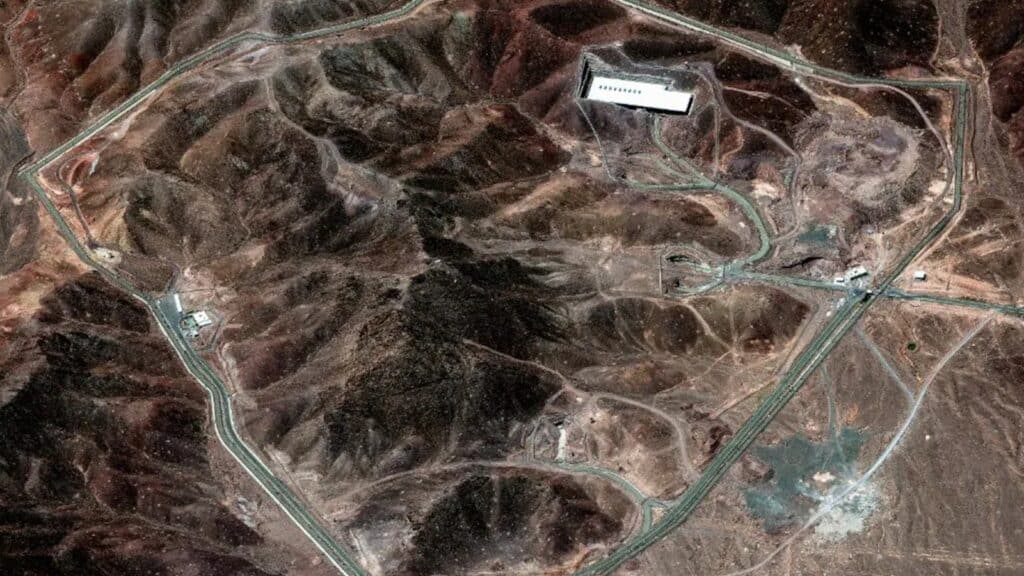Deep in the rugged mountains south of Tehran lies one of Iran’s most secretive and fortified nuclear facilities — the Fordow Fuel Enrichment Plant. Tucked under layers of rock and reinforced concrete near the holy city of Qom, the Fordow site has once again become the center of global attention amid escalating tensions between Iran and Israel.
The facility, originally a network of military tunnels, was repurposed by Iran’s Revolutionary Guards into a uranium enrichment site and publicly acknowledged only in 2009 after Western intelligence exposed its existence. Since then, it has served as a symbol of Iran’s defiance and nuclear ambition — and now, potentially, as a trigger point for a much wider regional conflict.
What makes Fordow exceptional is its location and structure. Built more than 80 meters deep into the mountains, experts believe the site is more fortified than the infamous Channel Tunnel that links the UK and France. This depth makes it virtually impervious to conventional airstrikes and ballistic missile attacks.
Israeli officials view Fordow as a central threat to their national security and have hinted at the need to neutralize it. However, analysts suggest that even Israel’s most advanced bunker-busting weapons may not be capable of destroying the facility completely. According to military experts, only the United States possesses the Massive Ordnance Penetrator (MOP) — a 30,000-pound bomb capable of reaching such depths — and its use would mark a dramatic escalation in the region.
Despite repeated warnings from the International Atomic Energy Agency (IAEA) that Fordow’s enrichment activity poses non-compliance risks, Iran insists the site is used for peaceful purposes. Satellite images reveal a complex network of tunnels, checkpoints, and heavily guarded perimeters. It is reported that six entry tunnels lead into the heart of the underground complex, where centrifuges enrich uranium to higher levels than permitted under the now-defunct JCPOA deal.
Calls for restraint are growing louder, particularly from Russia and international watchdogs who warn that any strike on Fordow could risk catastrophic consequences, especially if the facility contains active radioactive material.
As the shadow war between Iran and Israel intensifies, Fordow stands as both a symbol of resistance and a potential flashpoint. The world watches closely — because if Fordow cannot be destroyed easily, it may change the strategic calculus of the entire Middle East.





